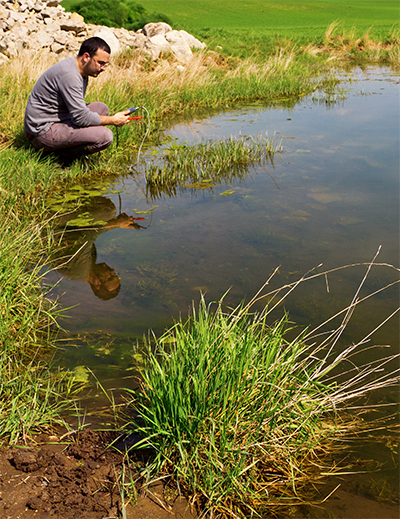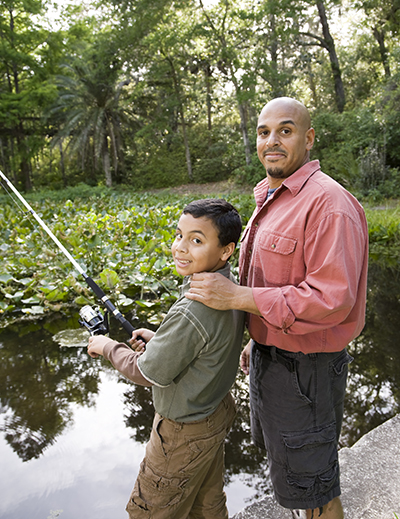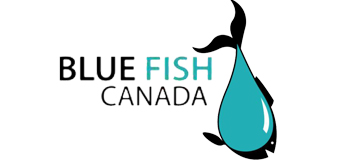Objectives
Conservation, Preservation and Restoration
River Restoration:
- Provide local volunteers with knowledge, tools and local materials to restore stream and river banks to ensure consistent water quality and suitable habitat for wild fish stocks.
- Facilitate work to be undertaken by local volunteers and BFC agents , in collaboration with land owners and government regulators, to create and restore beneficial freshwater and marine ecosystem characteristics.
Small Dam Removal / Modification:
- Restore aquatic connectivity and fish habitat through the selective removal or modification of small uneconomical dams.
Exceptional Waters:
- Develop community-based stewardship programs that engage local communities in activities to restore and protect lakes of exceptional quality and productivity.
- Provide local volunteers with knowledge, tools and local materials to improve water quality and fish habitat.
Water Level Management and Recovery:
- In conjunction with other partners, develop and promote the use of tools, methods, standards and management plans for lake water level and quality targets to protect freshwater and marine ecosystems and wild fish stocks.
- Disseminate research findings and best practices to local regulators and land owners for the management of water quality and levels.
- Track water quality and levels and their effects on wild fish stocks.
Watershed Conservation:
- Promote sustainable management of lands containing important watershed, riparian/floodplain characteristics, channel alteration, river corridor alterations, and wetlands and estuary changes.
- Collaborate with local volunteers, agencies and land owners to monitor and ensure aquatic environments are protected through science-based watershed planning, policies and regulation.
- Facilitate work to be undertaken by local volunteers to restore natural watersheds to their original configuration.
Research and Policy Development Activities
 Data Collection Program:
Data Collection Program:
- Collect local data through a National Digital Fisher Diary Program that engages fishers to collect and convey to BFC information on fish species, fish communities and habitat within Canada’s rivers, lakes and oceans.
- Analyze data and distribute findings to the public that improve the management of Canada’s recreational, sport and commercial fisheries.
Acid Neutralization Initiative:
- Work with local experts to monitor lake water acidification and to implement mitigation strategies.
- Compile and analyze research and intervention results and make available to the public.
- Identify trends that assist government policy makers to create regulations with respect to acid neutralization.
Blue Water Renewal:
- Conduct research aimed at the development of new science-based tools that focus on the physical management of ocean shorelines, inlets, bays and seabeds for the protection, restoration and conservation of freshwater and marine ecosystems and wild fish stock habitats.
- Work with local volunteers to document and monitor alterations to freshwater and marine environments, and compile, analyze and make available information to the public and government policy makers responsible for creating sustainable freshwater and marine management.
Water Quality Threat Mitigation:
- Carry out scientific research and policy development processes in collaboration with other stakeholders to identify point source and non-point source pollution from major land use activities, such as resource and production industries, agriculture, and the long range transport of atmospheric pollutants.
- Make research findings publicly available to facilitate the creation of policy designed to protect Canada’s freshwater and marine environments.
Freshwater and Marine Environment Integrity:
- Develop policies with respect to key issues such as floods and droughts, climate change, allocation / reallocation/transfers, and groundwater/surface water interactions.
- Highlight best practices that ensure the guarantee of freshwater quality quantity necessary to protect Canada’s aquatic health and wild fish resources.
- Develop policies through white papers, policy and position statements, and recommended tools, and make available to the public.
Climate Change Challenge:
- Research and develop science-based best practices to improve the capacity and capability of Canada’s watersheds to hold and manage water to offset changes in water flow, quality and temperature.
- Carry out watershed research activities in collaboration with government policy makers.
Educational Outreach Activities
Volunteer Training:
- Develop and implement tools and training modules to train volunteers in a variety of administrative, scientific and technical areas, as well as to impart techniques for conducting reliable and relevant direct observations.
- Provide examples of relevant best practices to local volunteers and associations to Develop meaningful projects, inform communities, monitor environments and assess the success of projects.
Fish Habitat Protection:
- Conduct a volunteer recognition and educational program built on a syllabus of water use management best practices and freshwater and marine environment monitoring, restoration and protection.
 Youth Education:
Youth Education:
- Educate youth and provide opportunities for youth to learn about wild fish and their freshwater and marine environments.
- Provide youth hands-on experience to fully educate them about the complex issues behind the restoration and protection of freshwater and marine environments.
Veterans Engagement Program:
- Implement an education and outreach program to engage Canada’s veterans to become hands-on volunteers with freshwater and marine environment restoration activities and wild fish stock sustainability management programs.
Multi-Media Documentation:
- Make available to the public multi-media tools to showcase the activities of BFC and its volunteers, agents and partners.
Search Conference Program:
- Organize search conferences involving key stakeholders and facilitators to identify new and creative means of achieving the goals of freshwater and marine environment conservation and wild fish stock sustainability.
- Hold conferences throughout Canada to facilitate discussions among key stakeholders.
Special Note: The charitable activities BFC carries out in support of its charitable objects, as set out in its articles of incorporation, are restricted to those activities that are in furtherance of its exclusively charitable objects, are charitable at law, and are in compliance with all provisions of the Income Tax Act (Canada) and Canada Revenue Agency policy in effect from time to time.
 Blue Fish Canada/Poisson Bleu Canada
Blue Fish Canada/Poisson Bleu Canada